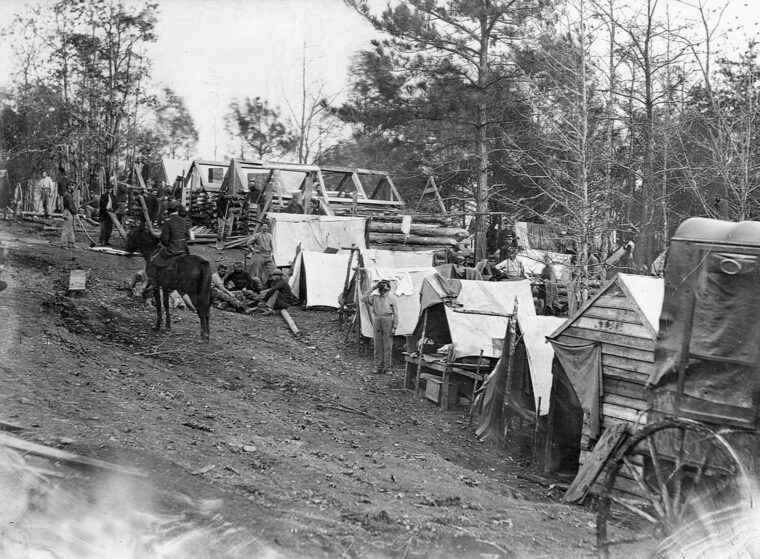
Confederacy
Photo Essay: Camping With the Union Army of the Potomac
by Kevin HymelThe first camps assembled by the Union Army of the Potomac were tent cities, thrown together hastily as new regiments arrived from the free states. Read more

Confederacy
The first camps assembled by the Union Army of the Potomac were tent cities, thrown together hastily as new regiments arrived from the free states. Read more
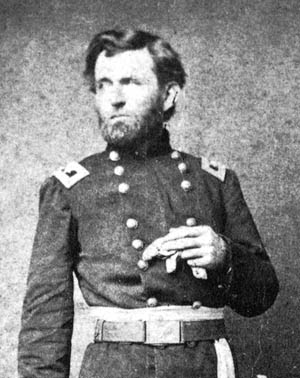
Confederacy
The Confederate attack on Fort Sumter on April 12, 1861, marked the beginning of the American Civil War. Read more
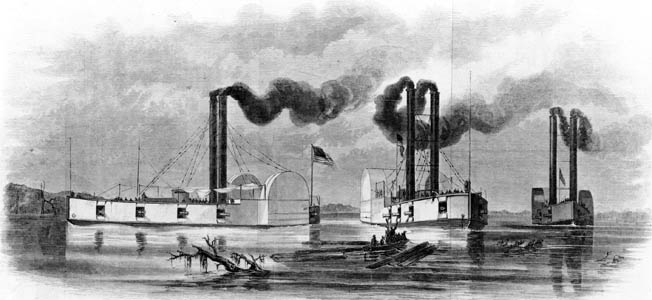
Confederacy
In theory, sealing off Southern seaports was supposed to cause economic ruin in the South, which in turn would diminish the Confederacy’s ability to wage war. Read more

Confederacy
Jennie Irene Hodgers was born in Ireland in 1843 or 1844 and sailed to New York with her family. Read more
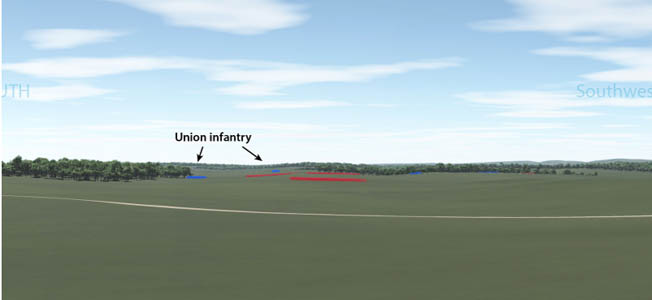
Confederacy
The British Joint Services Command and Staff College defines the “fog of war” as “the uncertainty in situational awareness experienced by participants in military operations.” Read more
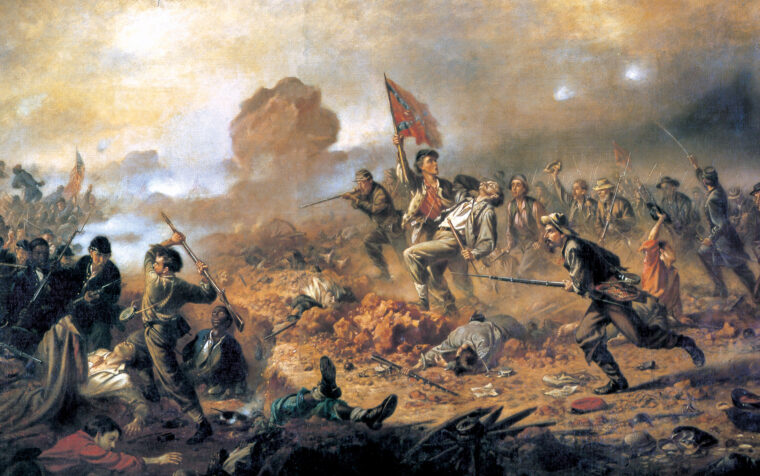
Confederacy
Of all the unlikely heroes of the Civil War, none was more unlikely than Bushrod Johnson, Ohio-born Quaker turned Confederate general. Read more
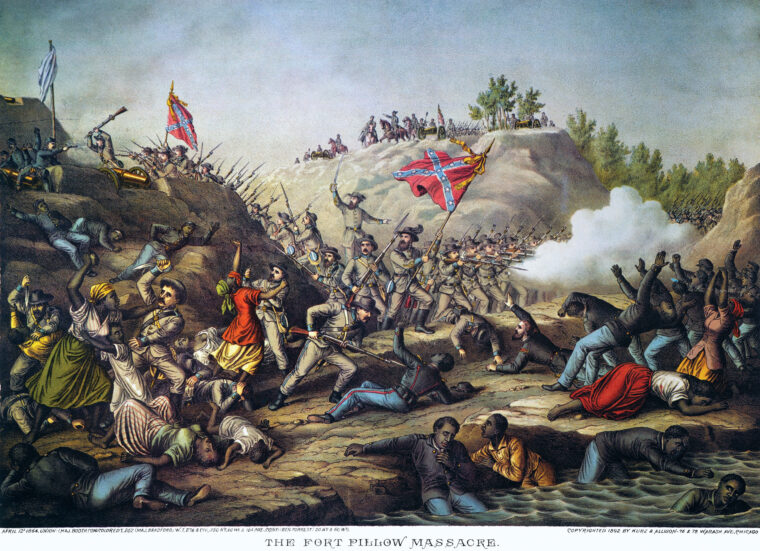
Confederacy
When Confederate Maj. Gen. Nathan Bedford Forrest and his 3,000 battle-hardened troopers rode back into their homeland of West Tennessee in late March 1864, they were not in the best of moods. Read more
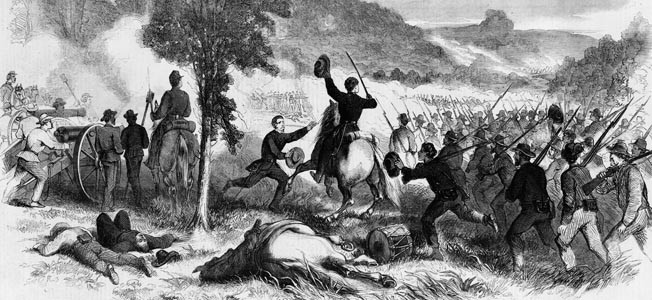
Confederacy
As the early days of the Civil War were unfolding and the destiny of the republic was beginning to be contested on the battlefield, Abraham Lincoln was engaged in a no less perilous type of battle. Read more
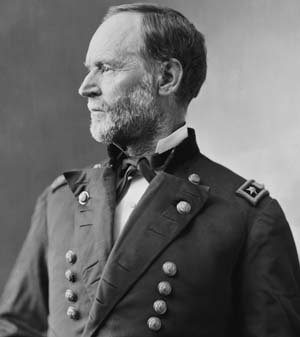
Confederacy
By Mike Haskew
Union General William T. Sherman was a friend and trusted subordinate of General Ulysses S. Grant, commander of all Union armies in the field during the Civil War. Read more
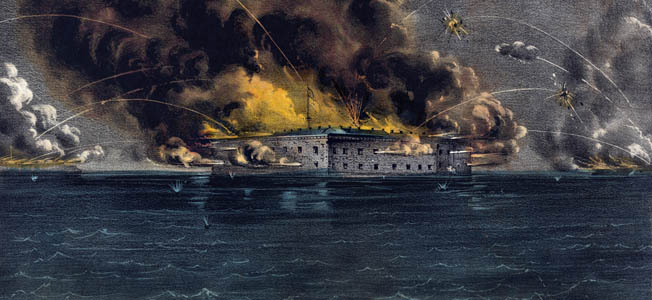
Confederacy
One of the catalysts for a major rebellion in the United States were irregular warfare in “Bleeding Kansas” from 1854 to 1861 between anti-slavery Free Staters and pro-slavery border ruffians. Read more
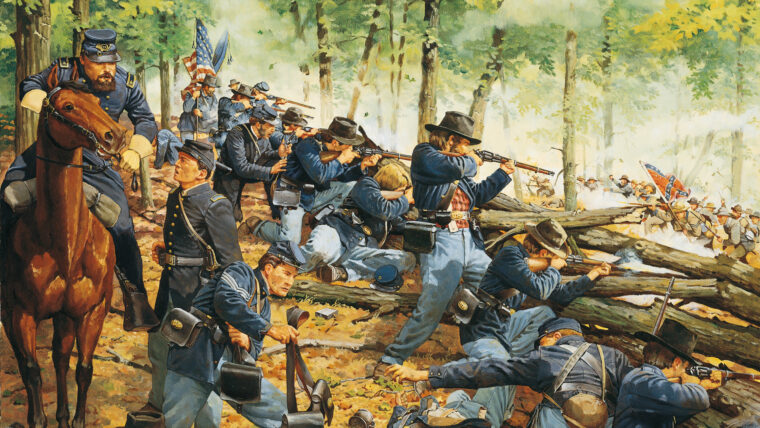
Confederacy
It was nearly 11 on the morning of September 20, 1863, and the woods around slow-moving Chickamauga Creek in northwest Georgia were ominously quiet. Read more
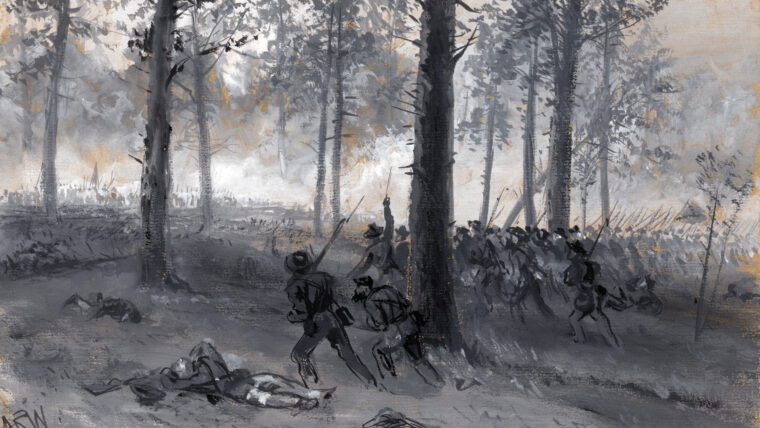
Confederacy
Seemingly from birth, William Haines Lytle was bound for glory. As the last surviving male offspring of one of Cincinnati’s leading pioneer families, Lytle was the prototypical golden boy. Read more
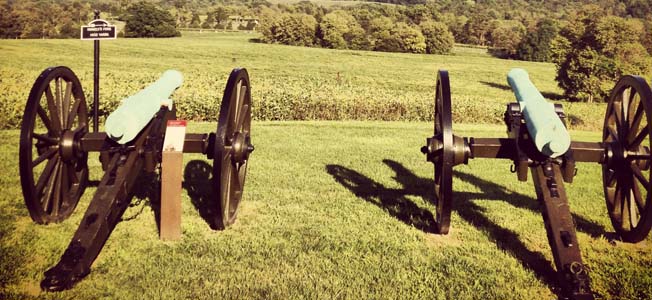
Confederacy
President Donald Trump has kept true to his pledge to donate his presidential income while in office, with the President’s first paycheck going, in full, to fund projects to maintain and restore the Antietam National Battlefield. Read more
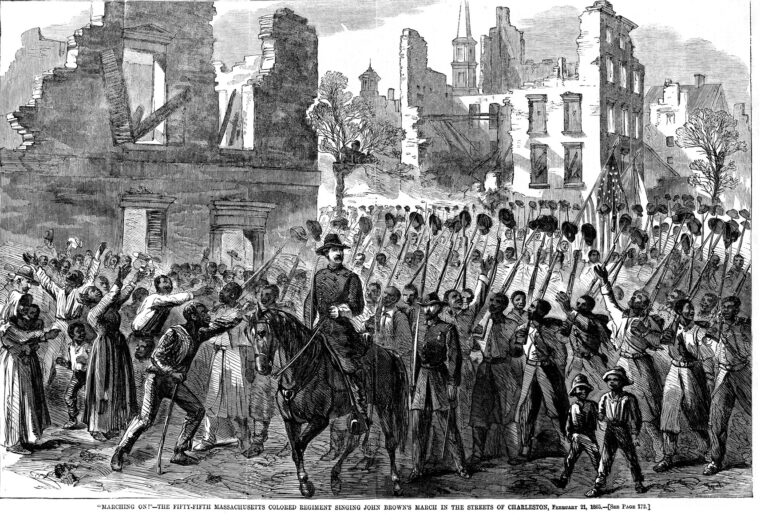
Confederacy
The men of the 54th Massachusetts Infantry Regiment began a hard march at 8:30 am on February 20, 1864. Read more
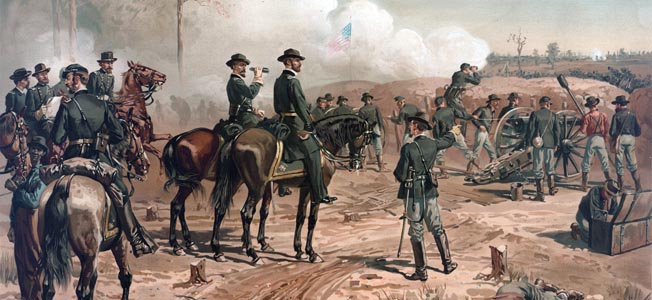
Confederacy
On September 3, 1864, a triumphant Maj. Gen. William Tecumseh Sherman telegraphed Washington, “Atlanta is ours and fairly won.” Read more
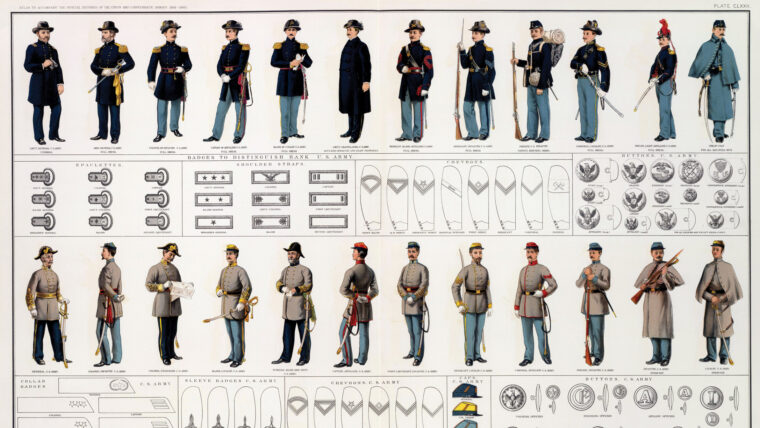
Confederacy
The title of the 128-book, 138,579-page work was a suitably large mouthful: The War of the Rebellion: A Compilation of the Official Records of the Union and Confederate Armies. Read more
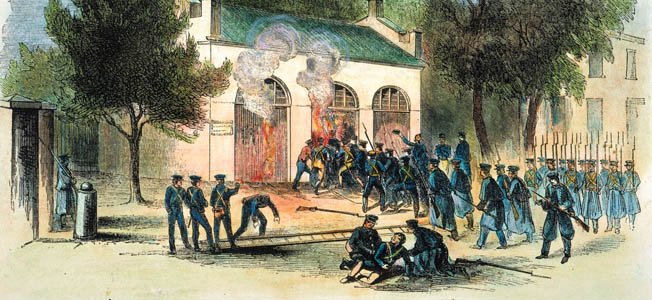
Confederacy
On the morning of October 17, 1859, an aide to Secretary of War John B. Floyd hurried off with an urgent message for Colonel Robert E. Read more
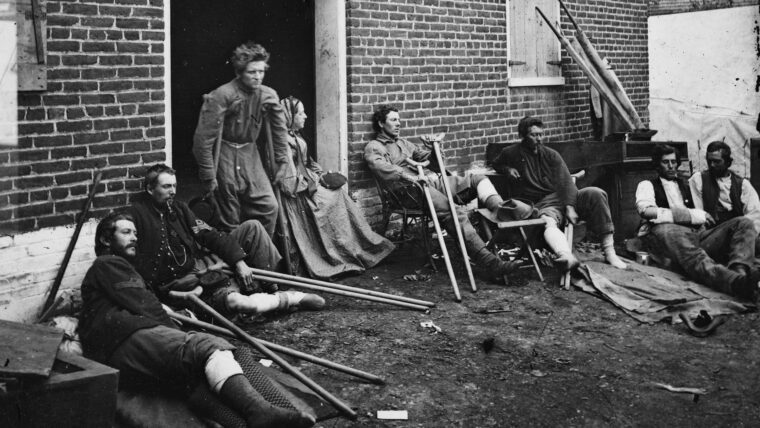
Confederacy
A slight knee wound brought the New Jersey boy to a Washington military hospital, but “his mind had suffered more than his body,” wrote volunteer nurse Louisa May Alcott. Read more
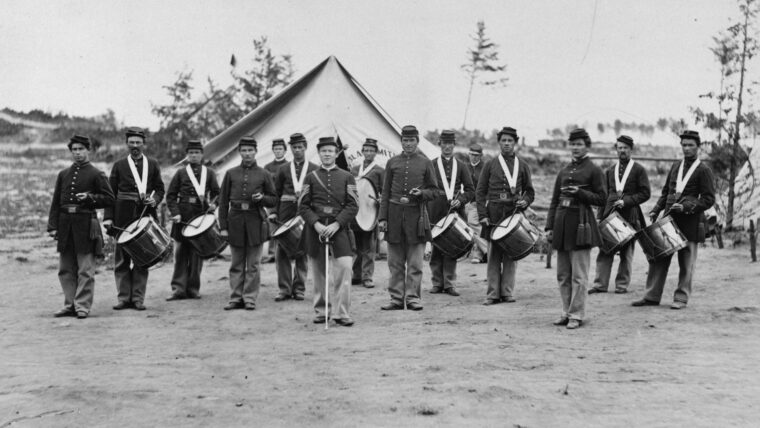
Confederacy
Winter was the calmest period for Civil War soldiers. Knowing that there was no combat immediately looming on the horizon allowed the soldiers to relax and recuperate in ways they had not been able to enjoy beafore. Read more
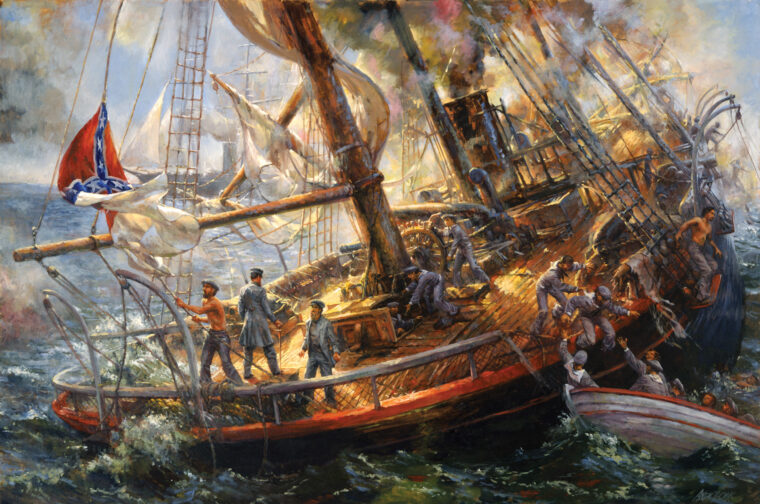
Confederacy
On August 24, 1862, newly promoted Captain Raphael Semmes of the Confederate States Navy called his largely English crew to the quarterdeck of his new command, the 220-foot battle cruiser Alabama, lying off the coast of Terceira in the Azores. Read more